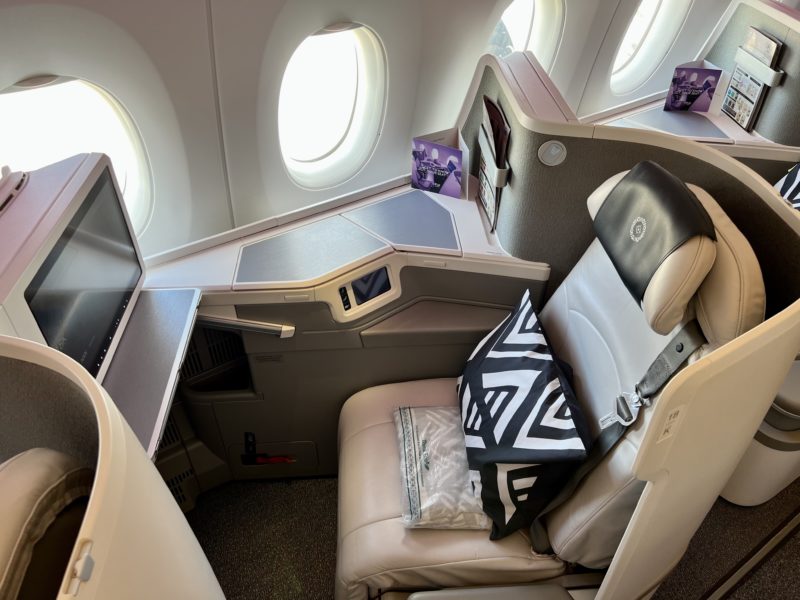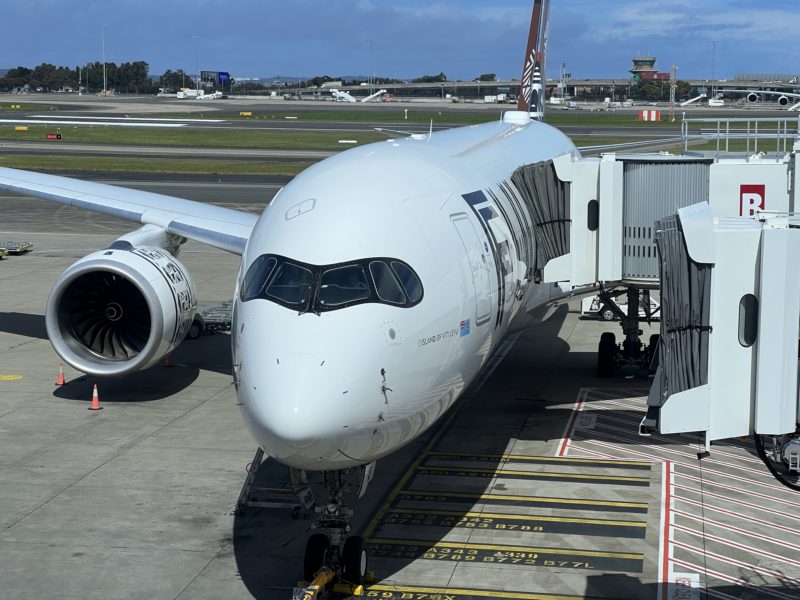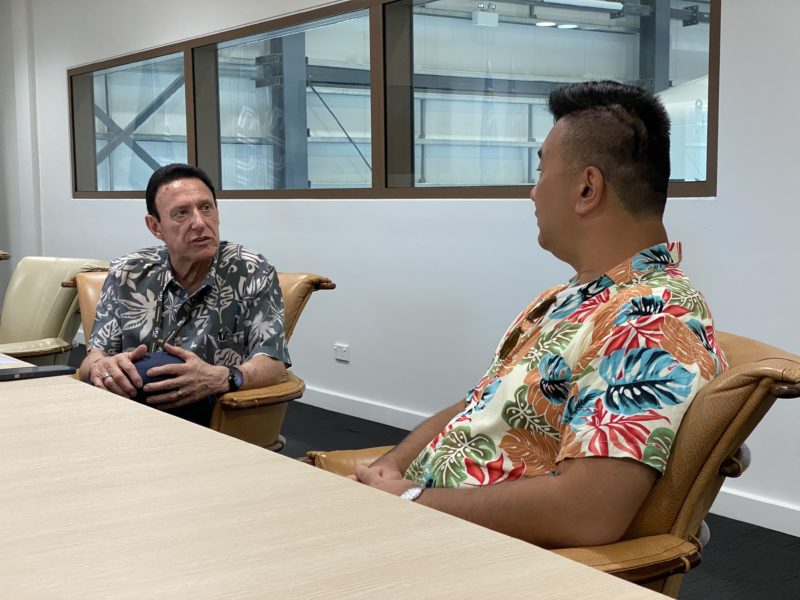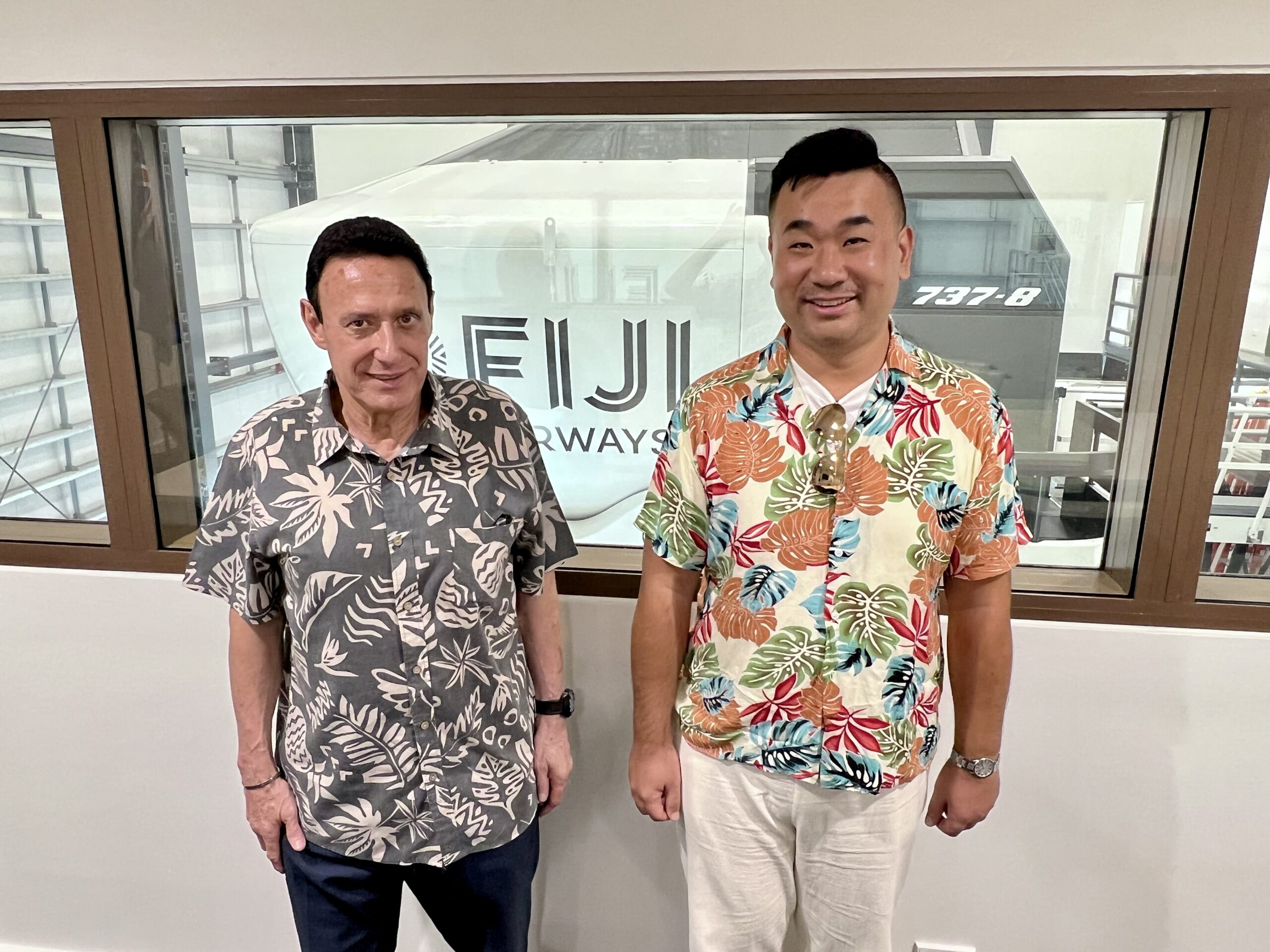How Fiji Airways Navigated through the COVID crisis?
We spent the entire COVID being ready. We had a very different approach; we had a travel-ready program because 50% of Fiji's economy is dependent on tourism and Fiji Airways brings 70% of the tourism to the country.
We had a very serious strategic role to play. We had to be ready.
We have the adequate strengths to do all the flights we're doing. We're doing about 60% of the flights we did pre-covid. The markets that are still close to us are South Pacific countries, Hong Kong and Japan. But the rest we are flying and we are flying a lot more. So kilometers we are flying 80% of 2019. But network destination is about 60%.
Passenger numbers are going through the roof at the moment, and we are about overall 20% better than we were in 2019. Markets like Australia are nearly 30% better.
We are selling at a rate we've never seen before. in Pre-Covid we were selling 3000-3500 bookings a day. We are running at 6000-7000 bookings a day.
Fiji Airways CEO Andre Viljoen
Covid brought a lot of positives as much as it was negative, you re-think the business. And one of the researchers showed us that about 70% of the Americans we researched said they know Fiji. This is a market we are keen to develop further.
There is a premium market here and there is also a mid-market. The mid-market hotel is InterContinental, Marriott, Sheraton, Sofitel etc.
The front end of our A350 passengers goes to high-end island resorts. The Vomos, the Kokomos, Six Senses, are $2000-$3000 a night.
So during Covid, we were looking for every opportunity and we said why don't we work with these high-end resorts? We approach them and work together with travel agents in the US to offer the entire Business Class cabin. So they would take on certain days the whole cabin of the guests to go to one of these high-end resorts.

Future Fleet and Network Development
We are in considering taking on two more A350s and swapping out two of our A330s.
A350 has been a game changer for Fiji Airways. The efficiencies are a game changer, the cargo capacity...During COVID, our A350 can carry up to 40 tons of Freight.
We will use the new A350s on our bigger destinations. So Hong Kong and Singapore will use the A350s as well as to Vancouver. We'll use the A330s to Narita and probably as a supplementary to Auckland, Melbourne, Brisbane etc.

Our A330 Business Class is not a 100% flatbed. You do have a slight slope. Where they are perfect is on the four-hour flight. You know anyone going to Auckland or to Sydney, they're not going to complaint. So that's why they're perfect for that.
Vancouver's new and for us, visiting family and friends (VFR) traffic is important for us.
In North America, our key partners are Alaska Airlines and American Airlines. Between Alaska and American, we've got a fantastic network. 40% are connecting passengers while 60% are point-to-point on our daily LAX flight. We want to grow more point-to-point traffic.
Current Challenges as an Island Carrier
Our biggest problem of course is fuel. The crude price of oil, which Brent crude was high cause of the war in Ukraine has now dropped to the $90s. The cost to refine crude to jet fuel used to be $11. it is now $30-$40. So we are back to $130-$140.
Our problem was when we opened in December 2021 and for the first months when the fuel price was still $85-90, we sold a lot of tickets at those prices. Then the fuel price jumped up drastically.
I have a lead-lag problem now I've got the old-priced revenue coming through with a higher fuel price and am still making losses.
Fiji Airways CEO Andre Viljoen
We will only get back to profits probably by December or January next year when I've got a match between the fares that we sold and the fuel price.
If I exclude fuel, we are profitable. Once I put fuel in, there's a mismatch between the revenue rate and the fuel cost. How these sales work in an airline is you sell today we get the cash and we created a liability called forward sales. The day you travel, we take the value from the coupon electronically, and transfer it from liability to revenue.

Well, we are already punched way above our weight. As a small national carrier we are disadvantaged when compared to the big giant out there.
Fiji Airways CEO Andre Viljoen
We have a small scale, I've got 20 aircraft, five types. You just do the maths in terms of unit costs. That's higher than the big guys that have a hundred of a time.
I have 95% of our traffic from leisure inbound. These are holidaymakers who want cheaper tickets. So the bulk of my market is a market that wants very, very low prices.
I have no market power. We have no frequent flyer program power.
Fiji Airways CEO Andre Viljoen
Holidaymakers, which are 95% of our business, won't join our frequent flyer program. They belong to their home program and every time they spend on their credit card, they go and get miles from their home program.


